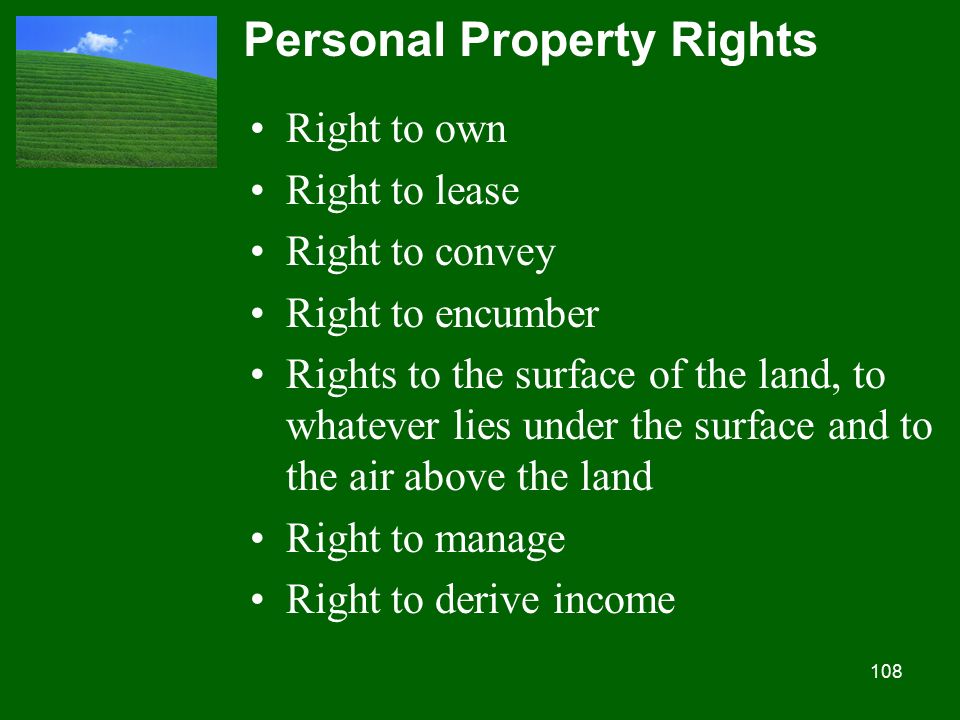Be Sure to Acquire ALL Additional Rights for a Property if Possible
 When a person buys a property they usually get the land and any improvements made on the land. However, they do not automatically get all the rights for the land, including what is below and above the surface level of the land unless they also acquire all the “rights” associated with the land.
When a person buys a property they usually get the land and any improvements made on the land. However, they do not automatically get all the rights for the land, including what is below and above the surface level of the land unless they also acquire all the “rights” associated with the land.
The rights are a separate ownership position, in addition to the surface area of the land and any improvements made upon the land such as a home or buildings. In the best case scenario, it is a better idea to make sure the acquisition of the property includes the mineral rights and water right, and air right. In some cases, these rights may be more valuable that the surface area of the land and any improvements made on the land.
Sometimes it is not possible for a seller in Texas to convey the land with all the rights includes. They may have purchased the land and its improvements, without also obtaining the mineral rights, water rights, or air rights.
Mineral Rights
From Wikipedia, “Ownership of mineral rights (more properly “mineral interest”) is an estate in real property. Technically it is known as a mineral estate, although often referred to as mineral rights. It is the right of the owner to exploit, mine, and/or produce any or all of the minerals lying below the surface of the property.
The mineral estate of the land includes all organic and inorganic substances that form a part of the soil. Exceptions include sand, gravel, limestone, and subsurface water—which are normally considered part of the surface estate.
Mineral interests can be found across the entire United States. The most common states known for oil and gas production include Texas, Oklahoma, North Dakota, California and New Mexico. Texas, being one of the highest producers of oil and gas, accounts for nearly a third of both crude oil and natural gas reserves in the United States. The Eagle Ford Shale and Permian Basin in Texas are the leaders in the overall production of oil and gas. Therefore, mineral rights are common in these areas.”
Water Rights
From Wikipedia, “Water rights in water law refer to the right of a user to use water from a water source, e.g., a river, stream, pond or source of groundwater. In areas with plentiful water and few users, such systems are generally not complicated or contentious. In other areas, especially arid areas where irrigation is practiced, such systems are often the source of conflict, both legal and physical. Some systems treat surface water and ground water in the same manner, while others use different principles for each.”
Air Rights
From Wikipedia, “Air rights are the property interest in the “space” above the earth’s surface. Generally speaking, owning, or renting, land or a building includes the right to use and develop the space above the land without interference by others.”
Conclusion
Make sure when you buy a property that you know what rights you get in the transfer of title. There are some rights that may be very valuable in the future that you need to consider when making a property purchase.